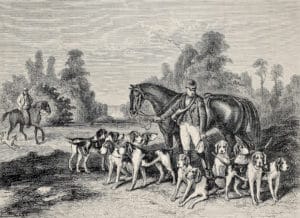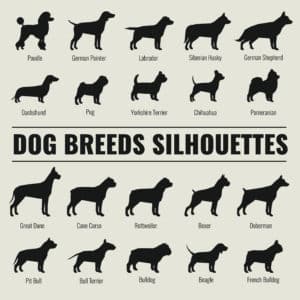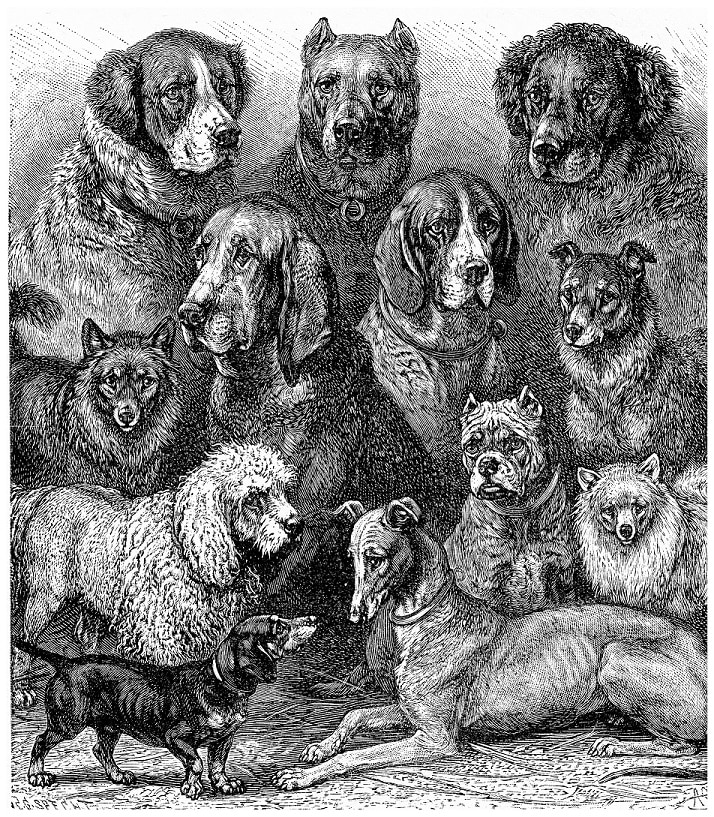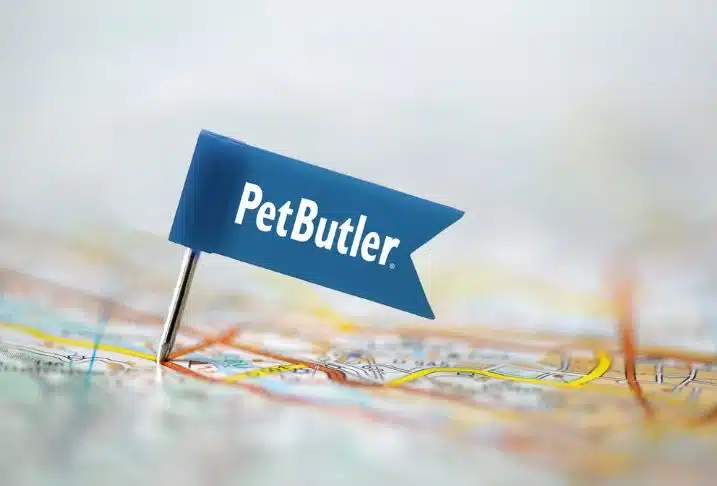Man’s best friend, the dog, has been our greatest companion for generations. Our mutualistic relationship is unrivaled in the natural world, and it’s something that humans should continue to cherish for as long as we can. But where did they come from, and how did we domesticate them? How are there so many breeds and how did history complicate our relationship? These are just a few questions about the evolution of dogs.
What Is the Origin of Man’s Best Friend?
Based on various discovered fossils, most researchers believe that the evolution of dogs began as puppies diverged from the gray wolf’s genetic makeup. Over the process of several thousand years, one species of wolf grew more splotchy coats, curly tails, and floppy ears to become a generic, wild version of the pooches we recognize today. Because of their less threatening demeanor and attitude, we instinctively started domesticating them – or, in a way, they started domesticating themselves. Instead of competing against humans for similar prey, the kindest, softest, and cutest wolfdogs survived by roaming alongside us. In a transformation that has been described as the “survival of the friendliest,” humans unwittingly began caring for and feeding them. By around 8,000 B.C.E., it became common for canines to travel among packs of hunter-gatherers and nomadic tribes.

When Did Dogs Start Becoming Pets?
The next big step in the dog evolution was taken far closer to the present. In the early 1800s, once civilization progressed beyond the industrial revolution, high society in Victorian Britain introduced household pets to the mainstream. While dogs had been enjoyed by royalty in the past, pets had never been so available to the masses. Normalizing ownership of puppies had a large impact around the globe, but this practice was most strongly felt in Europe, where it immediately evolved into a competition. A prize-winning mutt symbolized both wealth and power, so pride-driven aristocrats created breeding techniques to standardize dog attributes. Yes, humans are the ones responsible for the modern breeds we see today. Some features for molding dogs was based on color, size, and physical conditions.
Why Where Specific Dog Breeds Made?
Dogs were bred for certain activities inducing:
- High-class owners preferred fashionable and luxurious breeds.
- Lower class opted for cheaper dogs like bulldogs, whippets, and terriers.
- Fighting dogs were bred for hunting or for being “Gun dogs”.
- Sprinter dogs were created for hunting, herding, and racing.
This idealistic standardization was taken so seriously that countries would even argue over a breed’s origin/evolution – claiming the Newfoundlands, Great Danes, and basset hounds, among its various other dogs, was a source of national pride for Great Britain. However, they didn’t exist there naturally – that’s just where their breeds were created. At the end of the day, over the last couple of centuries, 23 clades have been developed into over 400 breeds of dog.

What Are Some Fun Facts About Dog Evolution & Development?
- Since joining human tribes’ dogs have lost some of their more primitive tendencies. Unlike wolves, dogs fare far worse in the pack lifestyle, as opposed to before in nature. To these ends, they usually look for their owner’s assistance to guide the way.
- George Augustus Graham brought the legendary Irish wolfhound, a formally extinct dog breed, back to life in the 1800s. By crossing the Scottish deerhound with the greyhound, he made the Irish wolfhound as we know it today.
- Our interspecies connection has grown so strong that, when our gaze meets eye to eye, both humans and dogs’ brains secrete oxytocin – a hormone indicating maternal bonding and trust. This is the only interspecies example of this kind of bonding that we know of!

